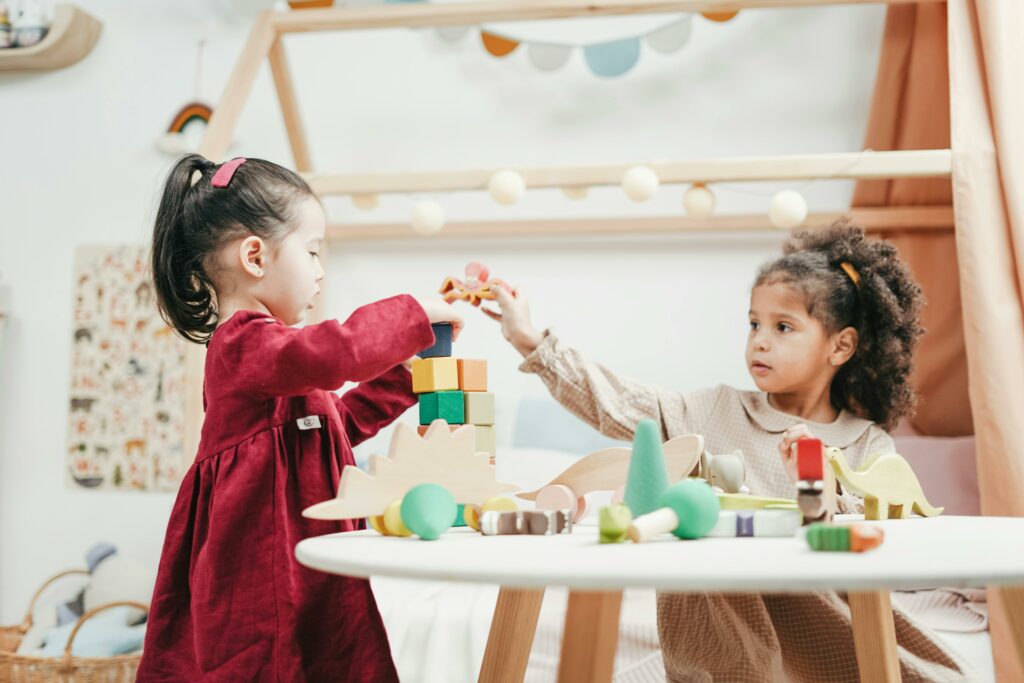
Home /
Social skills are essential for navigating daily life, forming relationships, and achieving independence. However, for some children, developing these skills does not come naturally. If your child struggles with making friends, understanding social cues, or engaging in conversations, Applied Behavior Analysis (ABA) therapy may be a valuable tool in their development.
For parents in Atlanta, Georgia, finding ways to help their child improve social skills can be a top priority. This blog will explore how ABA therapy specifically targets social skill development, the techniques used by therapists, and how parents can support their child’s growth outside of therapy sessions.
ABA therapy is widely recognized for helping children develop essential life skills, including communication, behavior management, and social interaction. Social skills encompass a broad range of behaviors, such as:
For children with developmental delays or social anxiety, these skills may be difficult to acquire without structured guidance. ABA therapy provides targeted interventions to help children learn and practice these essential skills in real-world settings.
ABA therapy utilizes evidence-based techniques to teach and reinforce social behaviors. Here are some of the key strategies used:
Children often learn by observing others. ABA therapists model appropriate social behaviors, such as greeting others, sharing, or initiating conversations. Through guided imitation, children practice these behaviors in structured sessions and eventually apply them in everyday situations.
Practicing social interactions in a safe, controlled environment helps children feel more comfortable in real-life settings. Therapists create role-playing scenarios where children practice:
Social stories are short narratives that explain social situations in a clear and relatable way. They help children understand social expectations and appropriate responses. Visual supports, such as picture schedules and cue cards, reinforce these lessons and provide reminders in everyday settings.
Many children struggle with sharing, turn-taking, and cooperative play. ABA therapists use structured games and activities to teach these skills, ensuring children learn how to engage with peers positively.
When children successfully demonstrate a social skill, they receive immediate positive reinforcement. This could be in the form of praise, rewards, or preferred activities, encouraging them to continue using the skill.
One of the most important aspects of ABA therapy is generalization—the ability to apply learned skills across different environments. Therapists work with children in multiple settings (home, school, playgrounds) to ensure they can use their social skills beyond therapy sessions.
While ABA therapy provides structured learning, parents play a crucial role in reinforcing social skills. Here are some ways to support your child’s progress:
Arrange supervised playdates or enroll your child in group activities where they can practice social skills with peers. Sports teams, art classes, or social skills groups can be excellent opportunities.
Children learn by watching. Demonstrate polite greetings, active listening, and appropriate responses in your daily interactions.
Acknowledge and reward your child when they demonstrate good social behavior, such as sharing a toy or making eye contact during a conversation.
Use everyday situations to practice conversation skills. For example, role-play how to order food at a restaurant or introduce themselves to a new classmate.
If your child struggles in a social situation, gently guide them on how to improve. For instance, if they interrupt a conversation, remind them to wait for their turn to speak.
If you’re in Atlanta, Georgia, and looking for ABA therapy services to support your child’s social skill development, there are many reputable providers in the area. Look for:
Social skills are a vital part of a child’s development, and ABA therapy provides structured, effective strategies to help them build meaningful connections. Whether your child needs help with making friends, understanding social cues, or handling emotions, ABA therapy can offer the support they need to thrive.
By working with a qualified ABA provider and reinforcing skills at home, parents can play an active role in helping their child gain the confidence to interact with the world. If you’re in Atlanta, Georgia, consider reaching out to a local ABA therapy provider to start this important journey.